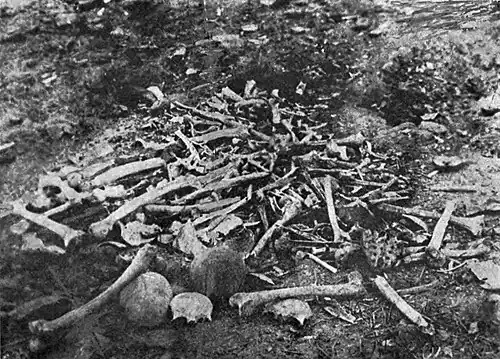Portal:Genocide
The Genocide PortalGenocide is the intentional destruction of a people in whole or in part. In 1948, the United Nations Genocide Convention defined genocide as any of five "acts committed with intent to destroy, in whole or in part, a national, ethnical, racial or religious group". These five acts were: killing members of the group, causing them serious bodily or mental harm, imposing living conditions intended to destroy the group, preventing births, and forcibly transferring children out of the group. Victims are targeted because of their real or perceived membership of a group, not randomly. The Political Instability Task Force estimated that 43 genocides occurred between 1956 and 2016, resulting in about 50 million deaths. The UNHCR estimated that a further 50 million had been displaced by such episodes of violence up to 2008. Genocide, especially large-scale genocide, is widely considered to signify the epitome of human evil. As a label, it is contentious because it is moralizing, and has been used as a type of moral category since the late 1990s. (Full article...) Selected article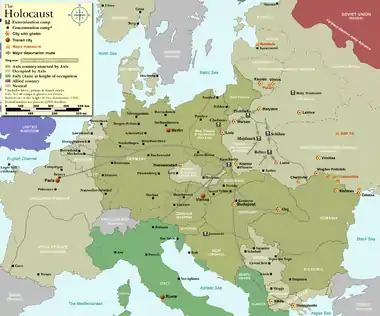 Ghettos established by the Nazis in which Jews were confined, and later shipped to concentration camps. During World War II, ghettos were established by the Nazis to confine Jews, Romani and Serbs into tightly packed areas of the cities of Eastern Europe. Starting in 1939, the Nazis began to systematically move Polish Jews into designated areas of large Polish cities. The first large ghetto at Tuliszków was established in December 1939 or January 1940, followed by the Łódź Ghetto in April 1940 and the Warsaw Ghetto in October 1940, with many other ghettos established throughout 1940 and 1941. The ghettos were walled off, and any Jew found leaving them was shot. The Warsaw Ghetto was the largest of these ghettos, with 380,000 people and the Łódź Ghetto, the second largest, holding about 160,000. The situation in the ghettos was brutal. In Warsaw, 30% of the population were forced to live in 2.4% of the city's area, a density of 9.2 people per room. In the ghetto of Odrzywół, 700 people lived in an area previously occupied by 5 families, between 12 and 30 to each small room. The Jews were not allowed out of the ghetto, so they had to rely on food supplied by the Nazis: in Warsaw this was 253 calories (1,060 kJ) per Jew, compared to 669 calories (2,800 kJ) per Pole and 2,613 calories (10,940 kJ) per German. With crowded living conditions, starvation diets, and little sanitation (in the Łódź Ghetto 95% of apartments had no sanitation, piped water or sewers) hundreds of thousands of Jews died of disease and starvation. In 1942, the Nazis began Operation Reinhard, the systematic deportation to extermination camps during the Holocaust. The authorities deported Jews from everywhere in Europe to the ghettos of the East, or directly to the extermination camps -- almost 300,000 people were deported from the Warsaw Ghetto alone to Treblinka over the course of 52 days. In some of the Ghettos the local resistance organisations started ghetto uprisings. None were successful, and the Jewish populations of the ghettos were almost entirely killed. Selected biographyIsrael W. Charny (born 1931) is an Israeli psychologist and genocide scholar. He is the editor of two-volume Encyclopedia of Genocide, and executive director of the Institute on the Holocaust and Genocide in Jerusalem. (Full article...) Quote
Related portalsSelected imagesDid you know...
Genocide listsInternational prosecution of genocide (ad hoc tribunals)It is commonly accepted that, at least since World War II, genocide has been illegal under customary international law as a peremptory norm, as well as under conventional international law. Acts of genocide are generally difficult to establish, for prosecution, since intent, demonstrating a chain of accountability, has to be established. International criminal courts and tribunals function primarily because the states involved are incapable or unwilling to prosecute crimes of this magnitude themselves. For more information see: International prosecution of genocide (International Criminal Court)To date all international prosecutions for genocide have been brought in specially convened international tribunals. Since 2002, the International Criminal Court can exercise its jurisdiction if national courts are unwilling or unable to investigate or prosecute genocide, thus being a "court of last resort," leaving the primary responsibility to exercise jurisdiction over alleged criminals to individual states. Due to the United States concerns over the ICC, the United States prefers to continue to use specially convened international tribunals for such investigations and potential prosecutions.[1] For more information see:
Genocide topicsGenocide Article Index
CategoriesCategory puzzle Select [►] to view subcategories
Genocide Genocides People by genocide Cultural genocide Genocide education Ethnic cleansing Eugenics Genocidal rape Genocide denial Genocide prevention Genocide remembrance days Genocide studies Incitement to genocide International Criminal Court Genocidal massacres Genocide museums Genocide research and prevention organisations People convicted of genocide Transgender genocide White genocide conspiracy theory Works about genocide Things you can do
Associated WikimediaThe following Wikimedia Foundation sister projects provide more on this subject:
Web resourcesExternal links
Discover Wikipedia using portals
|

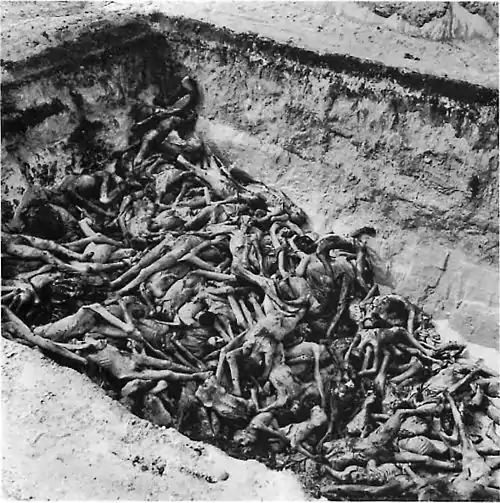
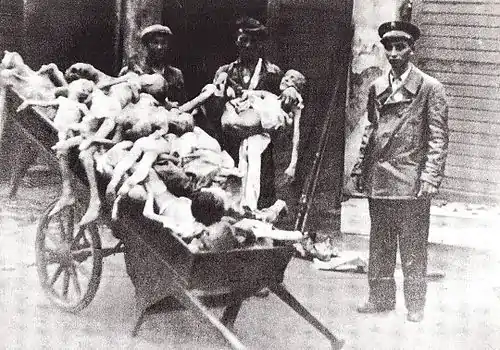
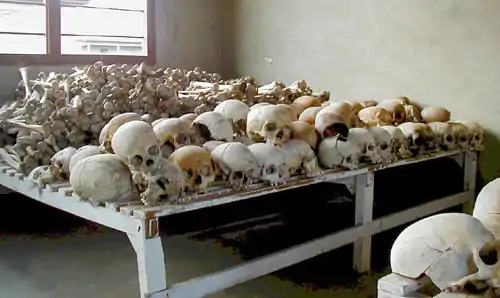
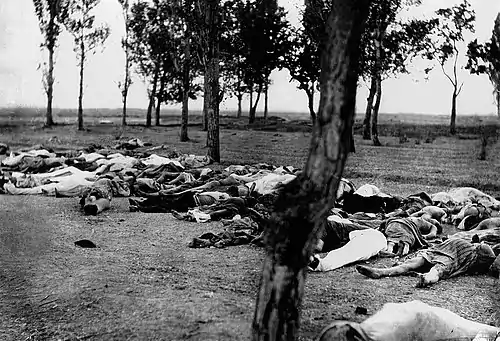
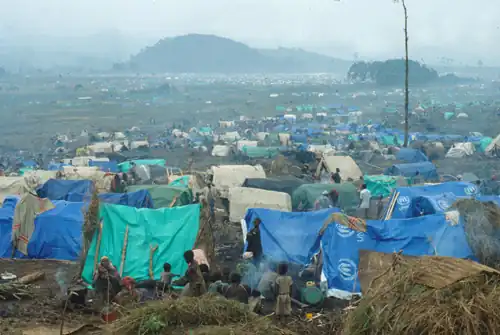
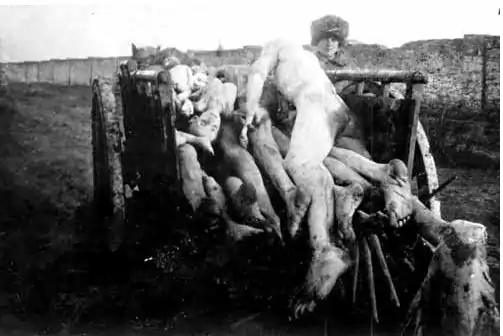
_at_Murambi_Technical_School.gif)
